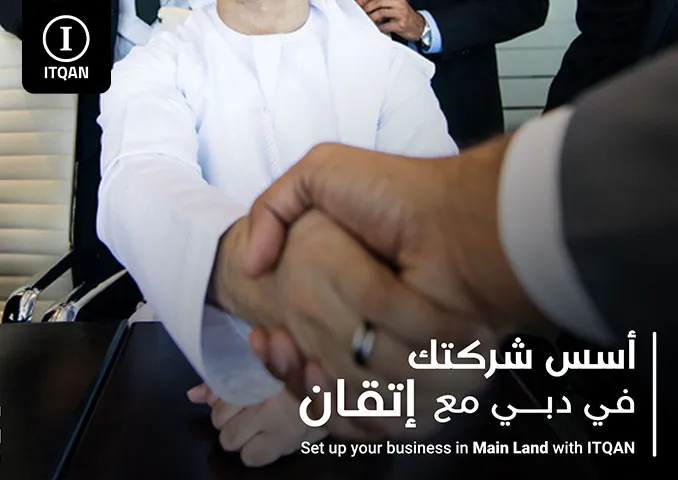Dubai Business Setup for Foreign Investors: What You Need to Know
Thinking about business setup UAE? Dubai stands as one of the world’s most attractive destinations for foreign investors aiming to tap into a thriving market. Its strategic location, business-friendly policies, and tax incentives make it a preferred hub for entrepreneurs worldwide.
Why Choose Dubai for Business Setup?
Dubai offers a blend of economic stability, advanced infrastructure, and diversified sectors. The city welcomes international entrepreneurs with open arms, promising hassle-free processes and modern amenities suitable for all business needs.
- Strategic location between East and West
- Robust infrastructure and logistics
- 100% foreign ownership in free zones
- Zero personal and corporate taxes in specific jurisdictions
- Fast-growing markets and innovation-driven economy
Key Steps for Business Setup in UAE
Starting your venture in Dubai involves navigating a structured yet straightforward process. Here’s how to get started:
1. Define Business Activity
The first step in business setup UAE is deciding on the nature of the enterprise. Your business activity determines the type of license needed: commercial, professional, or industrial. Choose one that aligns with your long-term goals.
2. Choose Between Mainland or Free Zone
Dubai provides two main jurisdiction options:
- Free Zones: Ideal for full foreign ownership, 0% taxes, and simplified customs procedures.
- Mainland: Suitable for companies looking to conduct trade directly within the UAE market and globally.
Each option has unique advantages. It’s important to evaluate the scope and limitations before making a decision.
3. Select a Legal Structure
Choose an appropriate legal structure based on your business type and location:
- Limited Liability Company (LLC)
- Sole Proprietorship
- Branch of Foreign Company
- Free Zone Establishment (FZE) or Company (FZC)
4. Reserve a Trade Name
Pick a unique and compliant trade name. Ensure it reflects your services and abides by UAE naming regulations.
5. Apply for a Business License
Once you finalize the name and structure, apply for the required license. Options include:
- Commercial License: For trading and service-oriented businesses
- Professional License: For consultancy and specialized professions
- Industrial License: For manufacturing and industrial activities
6. Office Space and Location
Depending on your business jurisdiction, you must lease physical space. Free zones typically offer flexible workspace solutions like coworking spaces and executive offices.
7. Final Approvals and Documentation
The final stage involves submitting legal documents, such as:
- Memorandum of Association (MoA)
- Shareholder passport copies
- Initial approval receipt
Once verified, you receive your business license to officially commence operations.
Common Legal Requirements for Foreign Investors
Investors must meet certain UAE government-imposed legal requirements:
- Visa eligibility for owners and employees
- UAE national sponsor for mainland companies (in certain cases)
- Compliance with labor and immigration laws
Consulting a business setup advisor can help ensure you’re aligned with all regulations.
Benefits of Business Setup in UAE
Foreign entrepreneurs enjoy several notable advantages:
- 100% foreign ownership in free zones
- Repatriation of capital and profits
- No currency restrictions
- Access to emerging markets in the Middle East and Asia
- Minimal bureaucracy and simplified registration
Types of Licenses Available in Dubai
The UAE offers three core licenses, each tailored to different operations within the country.
| License Type | Purpose |
|---|---|
| Commercial | Trading of goods and services |
| Professional | Consulting and service-based work |
| Industrial | Manufacturing and industrial operations |
Free Zones vs Mainland: Which is Better?
Choosing between free zones and mainland jurisdictions depends on your business goals. Free zones offer benefits like full ownership and tax exemptions but restrict direct trade with the UAE market. Mainland companies, however, can serve the entire UAE but may require a local sponsor.
Common Challenges for Foreign Investors
Despite the streamlined setup, foreign investors may face challenges including:
- Understanding local laws and documentation
- Choosing the right jurisdiction and license type
- Navigating business and visa processes
Hiring a setup consultant can reduce these complexities and increase efficiency.
Cost Breakdown for Dubai Business Setup
Starting a company comes with various upfront and ongoing expenses. Typical costs include:
- License fees: AED 10,000–AED 25,000
- Office leasing: AED 5,000–AED 20,000 annually depending on space
- Visa fees: AED 3,000–AED 6,000 per person
- Registration and administrative charges
Prices vary based on your business size, location, and services required.
Visa and Immigration Requirements
Foreign investors can apply for residency and investor visas. Employees are subject to standard labor permits authorized by the Ministry of Human Resources and Emiratisation.
Banking and Financial Setup
Opening a corporate bank account is essential for company operations. UAE offers numerous global and local banking options. Be prepared to submit detailed business plans and KYC information to process accounts successfully.
Conclusion
Business setup UAE remains a lucrative opportunity for international investors. Dubai provides robust infrastructure, a growing economy, and investor-friendly policies. With clear planning and legal compliance, launching your company can be seamless.
Get familiar with government regulations and consider professional assistance to minimize delays and maximize success.
Explore more information on the official UAE Government Portal.
Also, check out our comprehensive guide on Best Free Zones in UAE for Business Setup.












